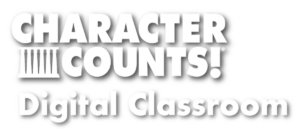The proliferation of social media has had a tremendous impact on our society in ways both positive and negative, and social media is not going away. As parents and guardians, it is our responsibility to teach kids how to use social media properly, and avoid the pitfalls and consequences associated with poor choices on social media.
There are countless stories of teens who posted an inappropriate quote, a picture, a song lyric, even a joke that may have seemed harmless in the moment but had significant consequences. Several examples are listed below.
- Josh Hader – Major League Pitcher – https://time.com/5341983/mlb-pitcher-josh-hader-all-star-game-racist-tweets/
- Josh Allen – NFL Quarterback – https://www.espn.com/nfl/story/_/id/23325677/josh-allen-takes-responsibility-offensive-tweets-sent-high-schooler
- Carson King – https://abcnews.go.com/US/racist-tweets-backlash-drama-surround-viral-beer-money/story?id=65849942
- College Recruiting – https://www.chicagotribune.com/sports/college/ct-spt-college-recruiting-social-media-20180726-story.html
After sharing these, or one of the many examples of teens using social media inappropriately, talk about the benefits of using a decision-making model to determine what should and should not be posted. Before every post, ask your teen consider questions like:
- If someone were to tweet or share something about me that I’m about to share about someone else, would I be ok with it?
- Is what I’m about to say or share the whole truth – no distortions, omissions, or spin?
- Is what I’m about to share from a reputable source?
- Do I want a future employer, college recruiter, to see what I’m about to post?
- Is this post helping someone or hurting someone?
- Is this post a reflection of who I am?
- What does this post say about me?
- Does this post demonstrate the Six Pillars of Character?
Simply asking one or two of these questions often provides the time and reflection needed to make the right decision before hitting post.

